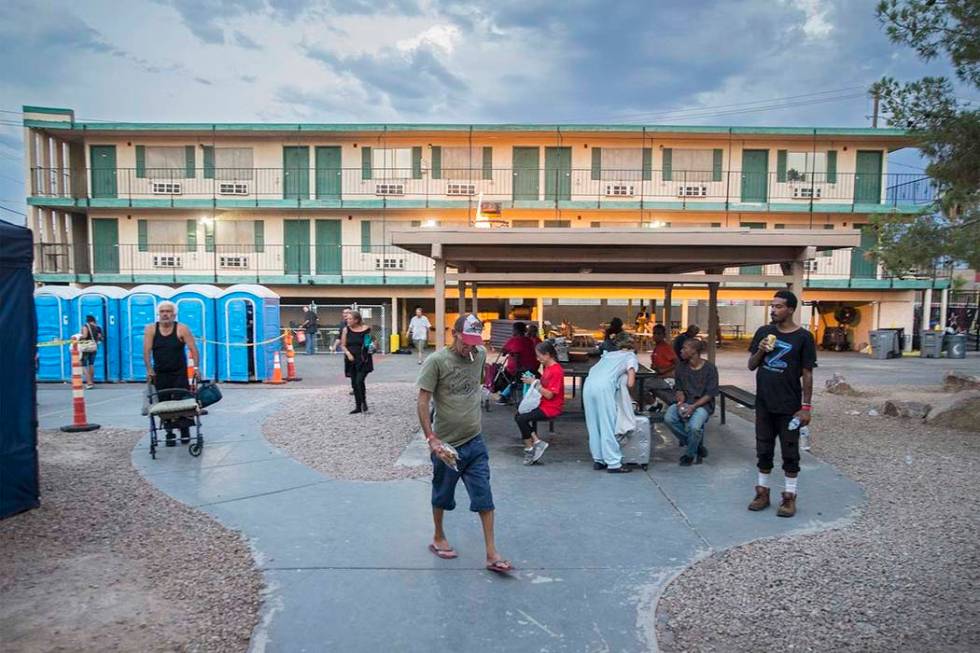Las Vegas parts ways with operator of homeless courtyard

Less than five months after signing a two-year contract with the city of Las Vegas, a nonprofit service provider is no longer operating the Corridor of Hope homeless courtyard.
About 16 people who worked at the courtyard lost their jobs as a result, said Alexandria Anderson, executive director of the nonprofit Southern Nevada Community Health Improvement Program, or CHIPs. The city will pay the organization nearly $48,500 to terminate the contract.
“The city wanted to take a more direct role in the day-to-day operations of it, and we wanted to put a little bit more energy and focus in other programs,” Anderson said.
Anderson said the city and nonprofit met in early October to discuss operations at the courtyard at Foremaster Lane and Las Vegas Boulevard, but after some discussions both parties agreed it was best to part ways.
The city will staff the courtyard with a combination of about 25 part-time and full-time employees until at least the end of an expansion of the campus is complete, said Kathi Thomas-Gibson, the city’s director of community services. The $10 million project is slated for completion by the end of 2019.
“We are a learning community, and we’re trying different things together and we reached mutual understanding together,” Thomas-Gibson said. “Really, all of us have been partners in exploring all kinds of ways to do things differently so we can really have an impact on serving homeless people.”
CHIPs and the city government will continue to work together to serve the homeless community, Anderson said.
The courtyard, which became a 24-hour operation in July, is a single location where homeless people can go for a range of services, including bathrooms, showers, medical and mental health services, housing, employment help and a safe place to sleep in a secure, open-air space.
The city and nonprofit inked their first contract in June. Las Vegas was required to pay CHIPs up to about $2.1 million during the courtyard’s first two years of operation. After construction was complete, the payment would increase by about $15,000 per month.
“This is something that had never been done before, so the ‘how’ was questionable,” Anderson said. “We learned a great deal, and got a direct pulse on some of the needs of people experiencing homelessness.”
Contact Briana Erickson at berickson@reviewjournal.com or 702-387-5244. Follow @brianarerick on Twitter.